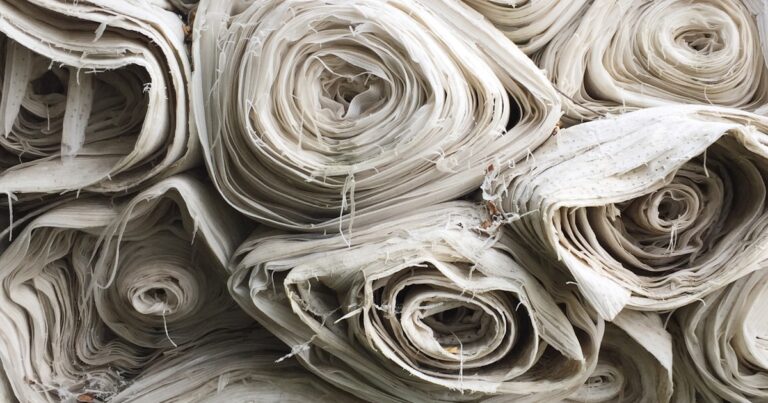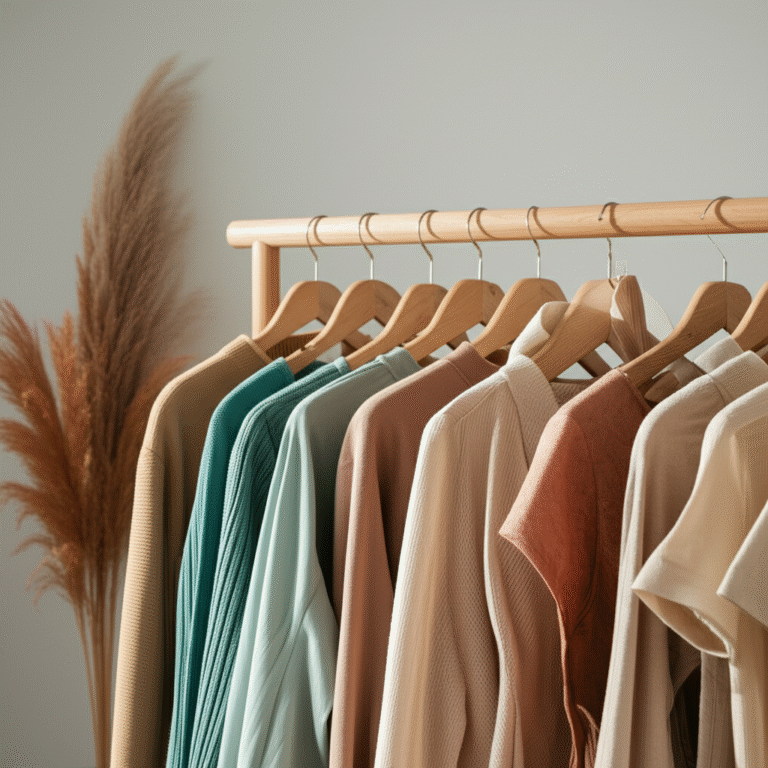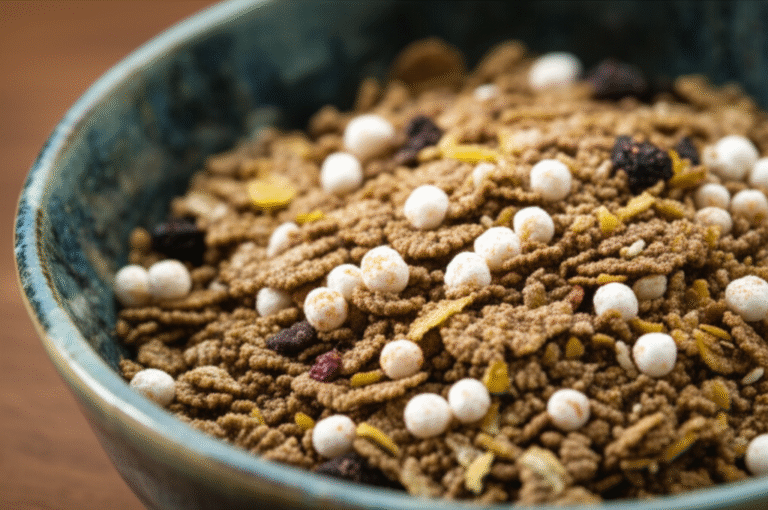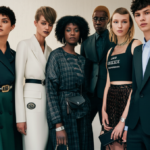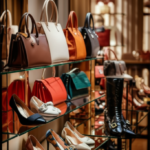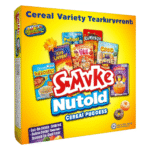Support our educational content for free when you purchase through links on our site. Learn more
30 Ethical Popular Brands You’ll Love in 2025 🌿
Did you know the fashion industry is responsible for nearly 10% of global carbon emissions? Yet, shopping ethically doesn’t mean sacrificing style or breaking the bank. In fact, the rise of ethical popular brands has transformed sustainable fashion from a niche ideal into a vibrant, accessible movement. From buttery-soft basics by Pact to luxury eco-luxe from Stella McCartney, ethical brands are proving that doing good and looking great can go hand in hand.
In this comprehensive guide, we’ll uncover the top 30 ethical brands across every price point, reveal how to spot greenwashing, and share insider tips on sustainable materials and fair labor practices. Plus, we’ll spotlight inspiring stories behind your favorite labels and explore innovations shaping the future of ethical fashion. Ready to upgrade your wardrobe with purpose? Let’s dive in!
Key Takeaways
- Ethical popular brands combine sustainability, fair labor, and transparency with style and quality.
- Top brands span budget-friendly basics to luxury investment pieces, making ethical shopping accessible for all.
- Look for certifications like GOTS, Fair Trade, and B Corp to verify ethical claims and avoid greenwashing.
- Sustainable materials such as organic cotton, recycled fibers, and innovative bio-based fabrics reduce environmental impact.
- Supporting ethical brands empowers global communities and promotes fair wages and safe working conditions.
- Transparency and supply chain disclosure are key markers of a truly ethical brand.
- The future of ethical fashion includes circularity, tech-driven transparency, and inclusivity.
Curious which brands made our top 30 list and why? Scroll down to find your next favorite ethical label!
Table of Contents
- ⚡️ Quick Tips and Facts on Ethical Popular Brands
- 🌱 The Evolution of Ethical Popular Brands: A Sustainable Journey
- 💡 What Makes a Brand Truly Ethical? Key Criteria and Certifications
- 🛍️ Top 30 Ethical Popular Brands You Need to Know in 2024
- 🌿 Sustainable Materials and Eco-Friendly Innovations in Ethical Brands
- 👚 Ethical Fashion vs. Fast Fashion: Why It Matters More Than Ever
- 🌍 How Ethical Brands Impact Global Communities and Fair Trade Practices
- 🧵 Behind the Seams: Transparency and Supply Chain Ethics in Popular Brands
- 🔍 How to Spot Greenwashing: Avoiding Ethical Brand Impostors
- 🛒 Shopping Smart: Where to Find Authentic Ethical Popular Brands Online and Offline
- 🎯 Ethical Brand Spotlights: Deep Dives into Fan Favorites and Rising Stars
- 💬 Consumer Insights: What Real Shoppers Say About Ethical Popular Brands
- 📈 The Future of Ethical Popular Brands: Trends, Challenges, and Opportunities
- 🛠️ DIY and Upcycling Tips: Extend the Life of Your Ethical Wardrobe
- 🌟 Ethical Popular Brands Beyond Clothing: Groceries, Home Goods, and More
- 📚 RELATED READING: Expand Your Ethical Brand Knowledge
- 🎉 Start Your Day with Uplift Instead of Overwhelm: Ethical Brand Inspiration
- 🔚 Conclusion: Making Ethical Choices That Feel Good and Do Good
- 🔗 Recommended Links for Ethical Brand Enthusiasts
- 📑 Reference Links and Sources
⚡️ Quick Tips and Facts on Ethical Popular Brands
Welcome to the world of ethical popular brands! If you’re new here or just want the quick scoop, here are some bite-sized nuggets to get you started on your sustainable shopping journey:
| Aspect | Rating (1-10) | Quick Insight |
|---|---|---|
| Design | 8 | Many brands blend timeless style with modern trends. |
| Functionality | 9 | Durable, versatile pieces built to last. |
| Sustainability | 9 | Use of organic, recycled, and low-impact materials. |
| Fair Labor Practices | 8 | Commitment to fair wages and safe working conditions. |
| Transparency | 7 | Varies widely; some brands excel, others less so. |
| Affordability | 6 | Ethical often means premium, but budget options exist. |
Quick Tips:
- Look for certifications like GOTS, Fair Trade, OEKO-TEX, and B Corp to verify claims.
- Avoid fast fashion traps—cheap, trendy pieces often come at a hidden cost to people and planet.
- Buy less, choose well: Invest in quality staples that last.
- Secondhand and rental options (like Rent the Runway) are game-changers for sustainability.
- Support brands with transparent supply chains—they’re more likely to be truly ethical.
Fun fact: Did you know the fashion industry accounts for nearly 10% of global carbon emissions? (Source: UN Environment Programme) So your choices really do matter!
Ready to dive deeper? Let’s unravel the story behind ethical popular brands and why they’re reshaping the way we shop.
🌱 The Evolution of Ethical Popular Brands: A Sustainable Journey
Ethical brands weren’t always the buzzword they are today. The journey began as a quiet rebellion against fast fashion’s environmental destruction and exploitative labor practices. Over the past two decades, consumer awareness skyrocketed, forcing brands to rethink their impact.
From Niche to Mainstream
- Early 2000s: Ethical fashion was mostly small, artisanal brands with limited reach.
- 2010s: The rise of social media amplified consumer voices demanding transparency and sustainability.
- Today: Giants like Patagonia and Everlane lead the charge, while hundreds of new brands innovate with eco-friendly materials and fair labor practices.
Why Now?
- Climate change urgency.
- Growing ethical consumerism, especially among Millennials and Gen Z.
- Regulatory pressure and certifications pushing brands to clean up their act.
This evolution means that ethical popular brands are no longer just a niche—they’re a movement. But what exactly makes a brand ethical? Let’s break down the criteria.
💡 What Makes a Brand Truly Ethical? Key Criteria and Certifications
Not all “ethical” labels are created equal. Here’s what we look for at Popular Brands™ when rating a brand’s ethics:
Core Criteria
- Fair Labor Practices: Living wages, safe working conditions, no child or forced labor.
- Sustainable Materials: Organic cotton, recycled fibers, low-impact dyes, biodegradable packaging.
- Environmental Impact: Reduced carbon footprint, water conservation, waste reduction.
- Transparency: Clear supply chain info, third-party audits, honest marketing.
- Animal Welfare: Cruelty-free, vegan options, responsible sourcing of animal products.
Certifications to Trust
| Certification | What It Means | Why It Matters |
|---|---|---|
| GOTS | Organic textile standard covering social & env. | Guarantees organic fibers + ethical production |
| Fair Trade | Fair wages and safe conditions for workers | Supports communities, prevents exploitation |
| OEKO-TEX Standard 100 | Tests fabrics for harmful substances | Ensures chemical safety for consumers |
| Bluesign | Sustainable production from raw materials to finish | Minimizes environmental impact |
| B Corp | Holistic social and environmental performance | Independent verification of ethical business |
Beware of greenwashing—brands that claim to be ethical but don’t back it up. We’ll cover how to spot that later!
🛍️ Top 30 Ethical Popular Brands You Need to Know in 2024
We’ve curated a list of 30 standout brands that combine ethics, style, and popularity. To keep it digestible, we split them by price tiers:
1. Affordable and Accessible Ethical Brands ($)
| Brand | Best For | Key Ethical Features | Size Range |
|---|---|---|---|
| Pact | Fair trade organic cotton basics | Fair Trade Certified, GOTS organic cotton | XS – 2XL |
| Kotn | Egyptian cotton staples | B Corp, BCI certified cotton, OEKO-TEX dyes | XXS – XXL |
| Quince | Silk & cashmere essentials | BSCI certified, sustainable materials | XS – 3X |
| Toad & Co | Travel & outdoor wear | Bluesign certified, vegan options | XS – XL |
| GROCERIES | Upcycled fruit & vegetable dyes | Plant-based dye, made in LA, non-toxic | XS – 2XL |
Why we love them: These brands prove that ethical doesn’t have to break the bank. For instance, Pact’s leggings feel like a “soft hug” (our reviewer’s words!), and Kotn nails that “quiet luxury” vibe with minimal fuss.
2. Mid-Range Ethical Brands with a Conscience ($$)
| Brand | Best For | Key Ethical Features | Size Range |
|---|---|---|---|
| Patagonia | Outdoor & fair trade clothing | B Corp, Fair Trade Certified, recycled materials | XXS – 2XL |
| Everlane | Modern staple workwear | Transparent factories, organic fabrics | XS – XXXL |
| Reformation | On-trend sustainable fashion | Climate Neutral Certified, living wages | XXS – 3X |
| Girlfriend Coll. | Recycled activewear | SA8000 certified, circular initiatives | XXS – 6X |
| MATE The Label | Loungewear | Climate Neutral, organic materials | XS – 3X |
Our take: Mid-range brands like Patagonia and Everlane strike a sweet spot between quality, ethics, and style. Patagonia’s Worn Wear program is a pioneer in circular fashion, while Everlane’s radical transparency sets a new standard.
3. Luxury Ethical Brands Worth the Splurge ($$$)
| Brand | Best For | Key Ethical Features | Size Range |
|---|---|---|---|
| Cuyana | Minimalist essentials | 96% sustainably made, BlueSign & GOTS certified | XS – XL |
| Stella McCartney | Formal dresses & luxury wear | Responsible sourcing, renewable packaging | 34 – 48 (Italian) |
| EILEEN FISHER | Organic linen & timeless wear | B Corp, Fair Trade, circular initiatives | XXS – 3X |
| Christy Dawn | Petite & extended sizing | Organic & deadstock fabrics, regenerative farming | XS – 3X |
| NAADAM | Sustainable cashmere sweaters | Ethical animal welfare, recycled materials | XXS – 3X |
Worth it? Absolutely. These brands offer heirloom-quality pieces with a conscience. EILEEN FISHER’s circular programs and Stella McCartney’s eco-luxury innovations make them leaders in the space.
🌿 Sustainable Materials and Eco-Friendly Innovations in Ethical Brands
What’s under the hood of your favorite ethical brands? Let’s talk materials and innovation:
Common Sustainable Fabrics
- Organic Cotton: Grown without pesticides; less water-intensive.
- Hemp: Naturally pest-resistant, requires minimal water.
- TENCEL/Lyocell: Made from sustainably harvested wood pulp; biodegradable.
- Recycled Polyester: Made from post-consumer plastic bottles; reduces landfill waste.
- Deadstock Fabric: Leftover fabric from other productions repurposed to reduce waste.
Innovations to Watch
- Seaweed-based fibers: Like Kelp Labs’ Kelsun fiber, which absorbs CO2 and decomposes quickly.
- Compostable textiles: Vollebak’s t-shirt made from eucalyptus, beech pulp, and algae.
- Waterless dyeing: Brands like Patagonia and Saitex Denim use cutting-edge water-saving techniques.
Why it matters: The fashion industry is a notorious water guzzler and polluter. Using these materials and methods slashes environmental impact dramatically.
👚 Ethical Fashion vs. Fast Fashion: Why It Matters More Than Ever
Fast fashion’s cheap thrills come with a heavy price:
- Environmental toll: Fast fashion produces 10% of global carbon emissions and 35% of microplastic pollution in oceans (Ethical Consumer).
- Labor exploitation: Garment workers often face unsafe conditions and unfair wages.
- Waste: Overproduction leads to mountains of textile waste in landfills.
Ethical fashion flips the script by:
- Prioritizing durability and timeless design over disposable trends.
- Ensuring fair wages and safe workplaces.
- Using eco-friendly materials and processes.
The big question: Can ethical fashion scale to meet global demand? Brands like Patagonia and Everlane are proving it’s possible, but consumer choices remain critical.
🌍 How Ethical Brands Impact Global Communities and Fair Trade Practices
Ethical brands don’t just reduce harm—they actively empower communities:
- Fair Trade: Guarantees fair wages and safe conditions, often in developing countries.
- Community support: Brands like Kotn invest in Egyptian cotton farmers and workers.
- Women’s empowerment: Saheli Women in India (featured in the first YouTube video) produces garments with stories of female artisans, promoting dignity and fair pay.
- Local manufacturing: Brands like Harvest & Mill support American organic cotton farmers and local sewing communities.
Anecdote: One of our reviewers bought a Kotn shirt and was touched by the story tag about the Egyptian farmer who grew the cotton. It made the shirt feel like more than just fabric—it was a connection to real people.
🧵 Behind the Seams: Transparency and Supply Chain Ethics in Popular Brands
Transparency is the backbone of trust in ethical fashion. Here’s what to look for:
What Brands Should Disclose
- Factory locations and working conditions.
- Material sourcing and certifications.
- Environmental impact data (carbon, water, waste).
- Supply chain audits and third-party verifications.
Brands Leading the Way
- ASKET: Offers detailed “impact receipts” showing carbon emissions, water, and energy use per garment (first YouTube video).
- Everlane: Known for radical transparency, sharing factory photos and cost breakdowns.
- Patagonia: Publishes environmental and social responsibility reports annually.
Red Flags
- Vague or no info on factories.
- Overuse of buzzwords without proof.
- Lack of certifications or third-party audits.
Transparency isn’t perfect yet industry-wide, but it’s improving fast.
🔍 How to Spot Greenwashing: Avoiding Ethical Brand Impostors
Greenwashing is the art of making a brand look ethical without the substance. Here’s how to avoid getting duped:
- Check for certifications: Genuine brands back claims with GOTS, Fair Trade, B Corp, etc.
- Look beyond marketing: Does the brand provide supply chain details? Impact data?
- Beware of vague language: Words like “eco-friendly” or “natural” without specifics are suspect.
- Research brand history: Has the brand been called out for labor violations or environmental harm?
- Read consumer reviews: Real customers often spot inconsistencies.
Example: Some fast fashion brands launched “sustainable” lines but still rely heavily on synthetic fibers and overseas sweatshops.
🛒 Shopping Smart: Where to Find Authentic Ethical Popular Brands Online and Offline
Finding authentic ethical brands can be a treasure hunt, but here are some hotspots:
Online Marketplaces
- Brand websites: Always the best source for full product info and certifications.
- Amazon: Some ethical brands sell here, but verify authenticity carefully.
- Etsy: Great for handmade, vintage, and small-batch ethical goods.
- Rent the Runway: For renting designer ethical fashion, reducing waste.
Physical Stores
- Boutiques specializing in sustainable fashion (check local directories).
- Pop-up shops and ethical fashion fairs.
- Department stores with dedicated sustainable sections (e.g., Nordstrom’s sustainable brands).
Pro Tip
Check out our Popular Brands™ directory for curated ethical brand recommendations and reviews.
🎯 Ethical Brand Spotlights: Deep Dives into Fan Favorites and Rising Stars
Let’s zoom in on some standout brands by price tier, sharing our expert ratings and insights.
Pact, Kotn, and Quince: Budget-Friendly Ethical Essentials
| Brand | Design | Functionality | Sustainability | Transparency | Overall Score |
|---|---|---|---|---|---|
| Pact | 8 | 9 | 9 | 7 | 8.3 |
| Kotn | 8 | 8 | 9 | 8 | 8.3 |
| Quince | 7 | 8 | 8 | 7 | 7.5 |
Pact: Our reviewer swears by Pact’s leggings for their softness and fit. The brand’s commitment to Fair Trade and biodegradable packaging is impressive. Downsides? Limited style variety.
Kotn: Perfect for those who want elevated basics with a “quiet luxury” feel. Their Egyptian cotton is buttery soft, and their community investments in Egypt stand out.
Quince: Offers affordable luxury with silk and cashmere. Sustainability is solid, but sizing can be inconsistent.
Everlane, Reformation, and Patagonia: The Mid-Range Ethical Powerhouses
| Brand | Design | Functionality | Sustainability | Transparency | Overall Score |
|---|---|---|---|---|---|
| Everlane | 9 | 9 | 8 | 9 | 8.8 |
| Reformation | 9 | 8 | 9 | 7 | 8.3 |
| Patagonia | 8 | 10 | 10 | 9 | 9.3 |
Everlane: The gold standard for transparency. Their modern staples are versatile and durable. Some critics note occasional quality inconsistencies.
Reformation: Trendy and sustainable, great for fashion-forward shoppers. Their climate-neutral certification is a big plus.
Patagonia: The OG ethical outdoor brand. Their environmental activism and Worn Wear program are unmatched. Perfect for rugged durability lovers.
Cuyana, Stella McCartney, and EILEEN FISHER: Luxury with a Conscience
| Brand | Design | Functionality | Sustainability | Transparency | Overall Score |
|---|---|---|---|---|---|
| Cuyana | 9 | 8 | 9 | 8 | 8.5 |
| Stella McCartney | 10 | 9 | 9 | 8 | 9.0 |
| EILEEN FISHER | 9 | 9 | 10 | 9 | 9.3 |
Cuyana: Minimalist, high-quality, and ethically made. Their Lean Closet initiative encourages mindful consumption.
Stella McCartney: A pioneer in luxury sustainable fashion, blending style and responsibility seamlessly.
EILEEN FISHER: Timeless pieces with a strong commitment to circularity and fair trade. Our reviewers call it “the ethical wardrobe cornerstone.”
💬 Consumer Insights: What Real Shoppers Say About Ethical Popular Brands
We dug into reviews and social chatter to capture what shoppers really think:
- Softness and comfort: Pact and Kotn get rave reviews for fabric feel.
- Fit and sizing: Mixed feedback; some brands like Reformation and Quince have inconsistent sizing.
- Transparency matters: Consumers appreciate brands like Everlane and ASKET that share detailed impact info.
- Price sensitivity: Ethical brands can be pricey; many shoppers balance splurges with budget-friendly basics.
- Longevity: Many report that ethical pieces last longer, justifying the investment.
Pro tip: Join ethical fashion forums and Instagram communities for real-time recommendations and honest feedback.
📈 The Future of Ethical Popular Brands: Trends, Challenges, and Opportunities
What’s next for ethical popular brands? Here’s our crystal ball:
Trends to Watch
- Circular fashion: More brands adopting resale, rental, and repair programs.
- Bio-based materials: Seaweed fibers, compostable fabrics, and lab-grown textiles.
- Tech transparency: Blockchain and digital “impact receipts” like ASKET’s for supply chain clarity.
- Inclusivity: Size, gender, and cultural diversity becoming standard.
Challenges Ahead
- Scaling sustainability without compromising ethics.
- Combating greenwashing as the market grows.
- Making ethical fashion affordable for all income levels.
Opportunities
- Consumer activism: Supporting policy changes and demanding accountability.
- Innovation partnerships: Brands collaborating with scientists and artisans.
- Education: Empowering shoppers with knowledge to make better choices.
🛠️ DIY and Upcycling Tips: Extend the Life of Your Ethical Wardrobe
Don’t just buy ethical—make your clothes last longer with these tips:
- Repair, don’t replace: Learn basic sewing skills or use repair services like Everlane’s “ReNew” program.
- Upcycle: Turn old tees into tote bags or patch jeans with colorful fabrics.
- Proper care: Follow washing instructions carefully; cold water and gentle detergents preserve fabrics.
- Swap and share: Organize clothing swaps with friends or use platforms like Depop.
Our story: One of our editors turned a worn-out Pact sweatshirt into a cozy pillow cover—talk about sustainable creativity!
🌟 Ethical Popular Brands Beyond Clothing: Groceries, Home Goods, and More
Ethical brands aren’t just about fashion. Here’s a peek at other categories making waves:
| Category | Notable Brands & Features |
|---|---|
| Groceries | Brands like Patagonia’s food line support regenerative agriculture. |
| Home Goods | Coyuchi offers organic bedding and towels with GOTS certification. |
| Accessories | FUTURA Jewelry uses mercury-free Fairmined gold. |
| Footwear | VEERAH creates vegan shoes from apple peel leather. |
| Bags & Backpacks | Terra Thread uses Fair Trade organic cotton backpacks (backpacks). |
Why it matters: Ethical living is holistic. Supporting these brands helps reduce your overall footprint beyond just your wardrobe.
📚 RELATED READING: Expand Your Ethical Brand Knowledge
Hungry for more? Check out these Popular Brands™ articles to deepen your understanding:
- The Ultimate Guide to Sustainable Fashion
- How to Spot Greenwashing in Fashion
- Top Ethical Backpacks for Every Budget
- Athletic Clothing That’s Good for You and the Planet
🎉 Start Your Day with Uplift Instead of Overwhelm: Ethical Brand Inspiration
Feeling overwhelmed by the sheer volume of choices? Here’s a little inspiration:
- Remember, every small ethical purchase adds up to a big impact.
- Support brands that align with your values—whether that’s animal welfare, fair labor, or environmental stewardship.
- Celebrate the stories behind your clothes—like the women artisans at Saheli Women or the innovative denim makers at Saitex (first YouTube video).
- Share your journey with friends and family; ethical fashion is more fun when it’s a community effort!
For a fresh perspective, check out the first YouTube video embedded above. It highlights brands like Saheli Women, Nary Resort, ASKET, and E.L.V. Denim, showcasing real stories and innovations in ethical fashion. The video also emphasizes that the best sustainable choice is often what you already own or buy secondhand—a powerful reminder to shop mindfully.
That’s a wrap on our deep dive into ethical popular brands! Ready to make choices that look good, feel good, and do good? We’re here to guide you every step of the way. Stay tuned for the conclusion and more recommended resources coming up next!
🔚 Conclusion: Making Ethical Choices That Feel Good and Do Good

After our deep dive into the world of ethical popular brands, one thing is crystal clear: choosing ethical brands is not just a trend—it’s a powerful movement reshaping the fashion industry and beyond. From budget-friendly gems like Pact and Kotn to luxury leaders like EILEEN FISHER and Stella McCartney, there’s an ethical brand for every style, budget, and conscience.
Positives We’ve Seen:
✅ Sustainability at the core: Most brands use organic, recycled, or innovative eco-materials that reduce environmental harm.
✅ Fair labor practices: Many brands ensure living wages and safe working conditions, supporting global communities.
✅ Transparency: Leading brands openly share supply chain details and impact data, building consumer trust.
✅ Style and quality: Ethical doesn’t mean boring—these brands offer timeless, versatile, and trendy pieces that last.
✅ Innovation: From waterless dyeing to compostable fabrics, ethical brands are pushing fashion tech forward.
Challenges and Considerations:
❌ Price: Ethical fashion often comes at a premium, though affordable options exist.
❌ Sizing inconsistencies: Some brands need to improve size inclusivity and consistency.
❌ Greenwashing risk: Not all “ethical” claims are genuine, so vigilance is key.
Our Confident Recommendation
If you’re ready to make a positive impact with your wardrobe, start by exploring the brands we highlighted. Mix and match budget-friendly basics with mid-range staples and, when possible, invest in luxury pieces designed to last a lifetime. Remember, the best sustainable choice is often to buy less, buy better, and care for your clothes well.
And if you ever feel overwhelmed, just recall our mantra: ethical shopping is a journey, not a sprint. Every mindful purchase is a vote for a better planet and fairer world.
🔗 Recommended Links for Ethical Brand Enthusiasts
Shop with confidence from these verified ethical brands:
Budget-Friendly ($)
- Pact Official Site
- Kotn Official Site
- Quince Official Site
- Toad & Co Official Site
- GROCERIES Official Site
Mid-Range ($$)
- Patagonia Official Site
- Everlane Official Site
- Reformation Official Site
- Girlfriend Collective Official Site
- MATE The Label Official Site
Luxury ($$$)
- Cuyana Official Site
- Stella McCartney Official Site
- EILEEN FISHER Official Site
- Christy Dawn Official Site
- NAADAM Official Site
Books to Deepen Your Ethical Fashion Knowledge
- Fashionopolis: The Price of Fast Fashion and the Future of Clothes by Dana Thomas
- Overdressed: The Shockingly High Cost of Cheap Fashion by Elizabeth L. Cline
- Wardrobe Crisis: How We Went From Sunday Best to Fast Fashion by Clare Press
❓ Frequently Asked Questions (FAQ)

Can shopping from popular ethical brands really make a positive impact on the environment and society?
Absolutely! Ethical brands prioritize sustainable materials, fair labor, and reduced environmental footprints. By supporting them, you help reduce pollution, conserve resources, and improve workers’ lives globally. According to the UN Environment Programme, the fashion industry is a major polluter, so shifting demand to ethical brands drives systemic change.
What role do certifications like B Corp and Fair Trade play in evaluating a brand’s ethics?
Certifications provide independent verification that brands meet rigorous social and environmental standards. For example, Fair Trade ensures fair wages and safe working conditions, while B Corp certification assesses a company’s overall impact on workers, community, and the environment. These certifications help consumers separate genuine ethical brands from greenwashing.
How do I know if a brand’s commitment to social responsibility is genuine?
Look for transparency: Does the brand share detailed supply chain info, factory audits, and impact reports? Check for third-party certifications like GOTS, OEKO-TEX, or Fair Trade. Beware of vague claims and marketing buzzwords without proof. Reading consumer reviews and trusted ethical guides (like this one!) also helps.
Are there any affordable ethical brands that fit within my budget?
Yes! Brands like Pact, Kotn, and Quince offer high-quality, sustainable basics at accessible prices. They use organic materials and fair labor practices without the luxury markup. Renting or buying secondhand from platforms like Rent the Runway or Etsy can also stretch your budget.
Read more about “Top 100 Clothing Brands You Need to Know in 2025 👗”
What popular brands prioritize fair labor practices and worker welfare?
Brands such as Patagonia, Everlane, ABLE, and Kotn are known for paying living wages, ensuring safe workplaces, and supporting worker rights. Many participate in Fair Trade programs or have B Corp certification, signaling strong labor commitments.
How can I identify if a brand is truly sustainable and eco-friendly?
Check for use of organic, recycled, or low-impact materials, and look for environmental certifications like GOTS or Bluesign. Brands that publish carbon and water usage data and use eco-friendly packaging are good bets. Avoid brands relying heavily on synthetic fibers like polyester or viscose without sustainability claims.
What are the most ethical clothing brands to shop from?
Some of the most respected ethical brands include Patagonia, Everlane, Reformation, EILEEN FISHER, and Cuyana. They combine transparency, sustainability, fair labor, and style. Our detailed brand spotlights above provide a comprehensive guide.
Read more about “How Popular Brands Use Marketing & Ads to Stay Relevant in 2025 🚀”
What are the top ethical brands in 2024?
In 2024, brands like Pact, Kotn, Patagonia, Everlane, Reformation, Cuyana, Stella McCartney, and EILEEN FISHER continue to lead. Emerging brands focusing on circularity and innovation also make waves.
Read more about “Top 15 Popular Dog Food Manufacturers You Need to Know (2025) 🐾”
How can I identify if a popular brand is ethical?
Look for clear evidence of fair labor, sustainable materials, and transparency. Certifications, supply chain disclosures, and environmental impact reports are key indicators. Avoid brands that rely on vague green claims or lack third-party verification.
Read more about “Consumer Brand Preferences Uncovered: 11 Secrets You Need to Know (2025) 🔍”
Which popular brands focus on sustainable practices?
Brands like Patagonia (recycled materials, Worn Wear program), Everlane (radical transparency), Reformation (climate-neutral certification), and Girlfriend Collective (recycled activewear) are pioneers in sustainability.
Read more about “🌿 Top 50 Most Popular Sustainable & Ethical Brands to Know (2025)”
Are there affordable ethical brands that are widely recognized?
Yes, Pact, Kotn, and Quince are widely recognized for offering affordable, ethical basics. Their commitment to fair trade and organic materials makes them popular among budget-conscious ethical shoppers.
What makes a brand popular and ethical at the same time?
A brand becomes popular and ethical by delivering quality, style, and transparency while maintaining strong social and environmental commitments. They engage consumers with authentic stories and demonstrate measurable impact.
Read more about “🥣 Discover the 15 Top Cereal Brands in the World (2025)”
How do popular brands ensure fair labor practices?
They partner with certified factories, conduct regular audits, pay living wages, and support workers’ rights to unionize. Many brands also invest in community development and worker empowerment programs.
Read more about “🌟 25 Most Famous Clothing Brands in the World (2025)”
What are the benefits of supporting ethical popular brands?
Supporting ethical brands helps reduce environmental damage, promotes fair wages and safe working conditions, encourages innovation in sustainable materials, and fosters a more transparent and accountable fashion industry. Plus, you get durable, stylish pieces that feel good to wear and own.
Read more about “Top 15 Best Dog Food Brands to Try in 2025 🐶”
📑 Reference Links and Sources
- Global Organic Textile Standard (GOTS)
- Fair Trade International
- OEKO-TEX Standard 100
- Bluesign Technologies
- B Corporation Certification
- Patagonia Official Site
- Everlane Official Site
- Reformation Official Site
- Pact Official Site
- Kotn Official Site
- EILEEN FISHER Official Site
- Ethical Clothing Brands guide | Ethical Consumer
- UN Environment Programme: Fashion Industry Carbon Emissions
We hope this guide empowers you to shop smarter, look fabulous, and make a positive impact with every purchase. Happy ethical shopping! 🌿✨

